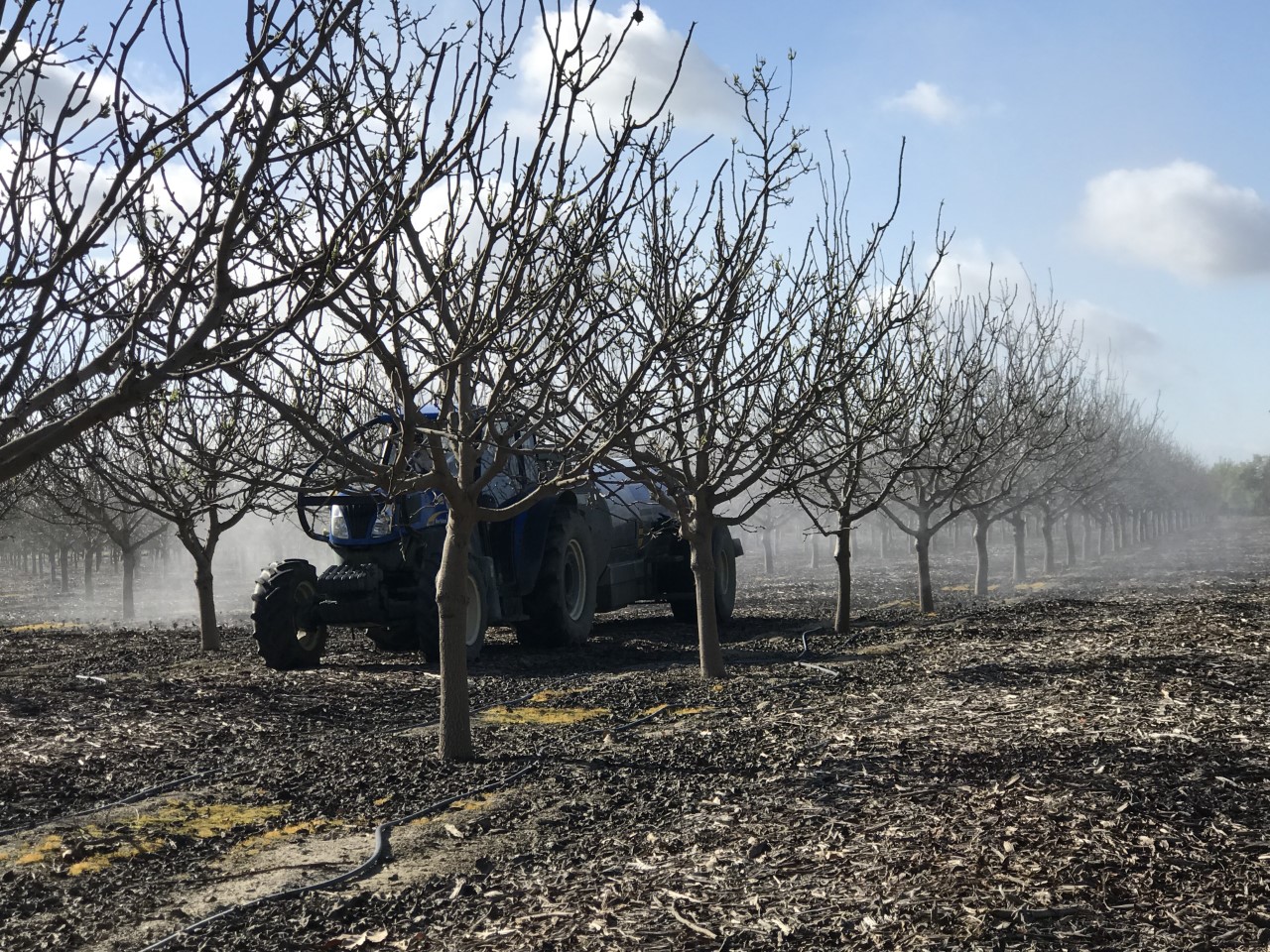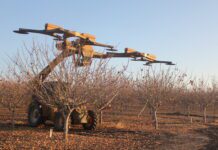
Taking advantage of an oversupply of wood chips from orchard removals gave a Central Valley pistachio grower an opportunity to improve soil health in his orchards.
Jeb Headrick said the wood chips spread on the orchard floor helped retain soil moisture during the heat of the summer and created an environment where soil microbes thrived.
Adding mulch to his orchard floor, Jeb Headrick said, was not without challenges.
“I think this would be something to help with moisture retention in a young orchard where you didn’t have to worry about orchard sanitation”, Headrick said.
The block of pistachio trees where he started with the chip applications was planted in 2011. The aim was to preserve soil moisture, reduce applied water and suppress weeds. The mulch was applied six years ago at a depth of four to six inches. Cost at that time was $200 for 100 cubic yards delivered to his Kings County location.
Since that time, costs for chips came down, but so did the chip supply. People went from getting rid of them to using air board funding to incorporate them into their orchards and it became difficult to source the amount of chips needed.
The material is now in short supply. Headrick said in the past, the chips were from citrus, walnut, almond, stone fruit and olive orchard removals.
NRCS has a cost share program that required four to six inches of chips covering 80% of the orchard floor. At that rate, Headrick said it changes the soil interface, keeping the surface moist and allowing for better water infiltration.
“A lot of good things happened,” Headrick observed as the mulch began to decompose.
There was an increase in microbial activity below the soil surface, he said, making nutrients more available for tree uptake. Tree roots moved up and grew into the mulch, giving them more access to oxygen. The mulch also added carbon to the soil.
The advantages of mulch in young trees include reduction of soil temperatures in the summer, retaining soil moisture and heat during the winter months and weed suppression.
Mulching with wood chips in bearing orchards poses issues with orchard sanitation. Although the chips settle by about 50% in six months, they still make it difficult to do orchard sanitation. The moisture from the chips does help with mold growth on mummies, breaking them down and removing overwintering sites for navel orangeworm, Headrick said.

















